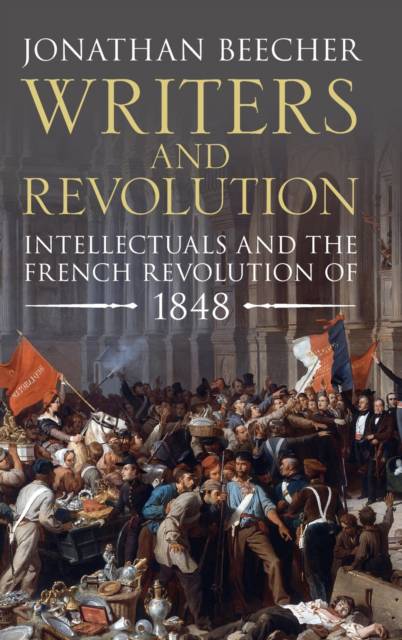
- Afhalen na 1 uur in een winkel met voorraad
- Gratis thuislevering in België vanaf € 30
- Ruim aanbod met 7 miljoen producten
- Afhalen na 1 uur in een winkel met voorraad
- Gratis thuislevering in België vanaf € 30
- Ruim aanbod met 7 miljoen producten
Zoeken
Writers and Revolution
Intellectuals and the French Revolution of 1848
Jonathan Beecher
Hardcover | Engels
€ 69,45
+ 138 punten
Omschrijving
The revolution of 1848 has been described as the revolution of the intellectuals. In France, the revolution galvanised the energies of major romantic writers and intellectuals. This book follows nine writers through the revolution of 1848 and its aftermath: Alphonse de Lamartine, George Sand, Marie d'Agoult, Victor Hugo, Alexis de Tocqueville, Pierre-Joseph Proudhon, Alexander Herzen, Karl Marx, and Gustave Flaubert. Conveying a sense of the experience of 1848 as these writers lived it, this fresh and engaging study captures the sense of possibility at a time when it was not yet clear that the Second French Republic had no future. By looking closely at key texts in which each writer attempted to understand, judge, criticise, or intervene in the revolution, Jonathan Beecher shows how each endeavoured to answer the question posed explicitly by Tocqueville: Why, within the space of two generations, did democratic revolutions twice culminate in the dictatorship of a Napoleon?
Specificaties
Betrokkenen
- Auteur(s):
- Uitgeverij:
Inhoud
- Aantal bladzijden:
- 494
- Taal:
- Engels
Eigenschappen
- Productcode (EAN):
- 9781108842532
- Verschijningsdatum:
- 13/05/2021
- Uitvoering:
- Hardcover
- Formaat:
- Genaaid
- Afmetingen:
- 196 mm x 234 mm
- Gewicht:
- 816 g

Alleen bij Standaard Boekhandel
+ 138 punten op je klantenkaart van Standaard Boekhandel
Beoordelingen
We publiceren alleen reviews die voldoen aan de voorwaarden voor reviews. Bekijk onze voorwaarden voor reviews.








